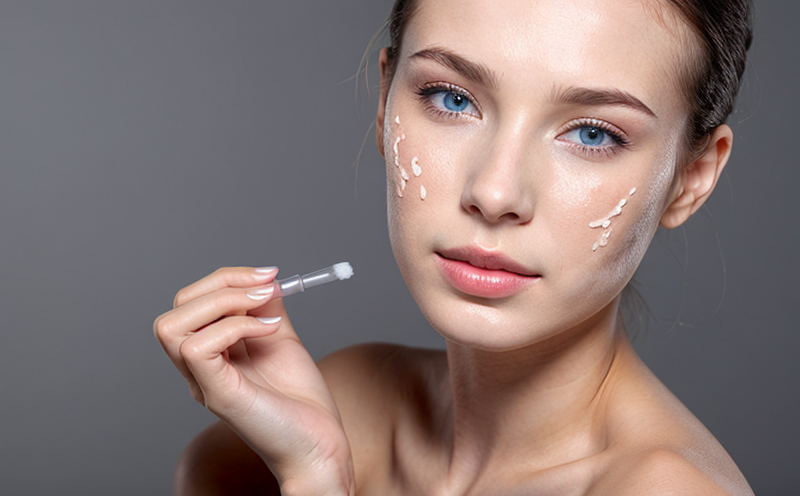Sensitization Testing for Organic Cosmetic Products
Testing for sensitization in organic cosmetic products is a critical aspect of ensuring consumer safety and compliance with international standards. Sensitization refers to the immune response that can occur when a substance comes into contact with human skin, leading to allergic reactions such as eczema or hives. This type of reaction can be severe and long-lasting, making it essential for manufacturers to identify potential allergens early in the product development process.
The European Union's Cosmetics Regulation (EC No 1223/2009) mandates that all cosmetic products undergo safety assessments before they are marketed. This regulation includes specific guidelines for testing ingredients and finished products for sensitization potential, particularly those derived from natural sources or labeled as organic.
Our laboratory specializes in conducting comprehensive allergen identification and skin irritation tests on organic cosmetic products using advanced techniques that align with international standards such as ISO 10993-11. These tests aim to identify which components of the product might cause an immune response, thereby helping manufacturers avoid harmful ingredients.
The process begins with thorough ingredient analysis combined with literature reviews to determine whether any known allergens are present in the formulation. For organic products, this involves checking against recognized lists like those provided by the Organic Cosmetics Standard (OCOS). If potential issues are identified, we proceed to conduct sensitization tests using appropriate animal-free models.
Our approach ensures that every step is meticulously documented and reported according to best practices, providing clients with reliable data they can use for informed decision-making during product development. By partnering with us early in the process, companies not only meet regulatory requirements but also enhance their reputation by demonstrating commitment to responsible ingredient sourcing.
It's worth noting that while organic certification does imply certain levels of purity and natural origin, it doesn't automatically guarantee absence of allergens or irritants. Therefore, rigorous testing remains necessary even for organically produced ingredients.
Applied Standards
In our laboratory, we adhere strictly to international standards when performing sensitization tests on organic cosmetic products. These include:
- ISO 10993-11: Biological evaluation of medical devices—Part 11: Sensitization
- OECD Guideline for the Testing of Chemicals, No. 442C: Skin Sensitization Tests using Alternative Methods
We also consider additional guidelines provided by organizations like the European Union's Cosmetics Regulation (EC No 1223/2009) and the Organic Cosmetics Standard (OCOS).
Scope and Methodology
| Step | Description |
|---|---|
| Ingredient Analysis | Identification of known allergens and irritants present in the product. |
| Literature Review | Review of existing literature to identify any additional allergenic concerns based on ingredient composition. |
| Animal-Free Testing Models | Use of validated animal-free models for assessing skin sensitization potential, ensuring compliance with ethical and legislative requirements regarding animal testing. |
| Data Documentation | Meticulous recording of all test results, experimental parameters, and observations in accordance with ISO 10993-11. |
Customer Impact and Satisfaction
By offering specialized sensitization testing services for organic cosmetic products, our clients benefit significantly in several ways:
- Enhanced Product Safety: Early detection of allergens helps prevent the release of potentially harmful products into the market.
- Compliance Assurance: Our tests ensure that your product meets all relevant legal and regulatory requirements, reducing risk of non-compliance penalties.
- Market Reputation: Demonstrating a commitment to safety can enhance consumer trust and loyalty towards your brand.
- Informed Decision-Making: Reliable test results provide valuable insights into product development, helping you make informed choices about ingredient selection.





